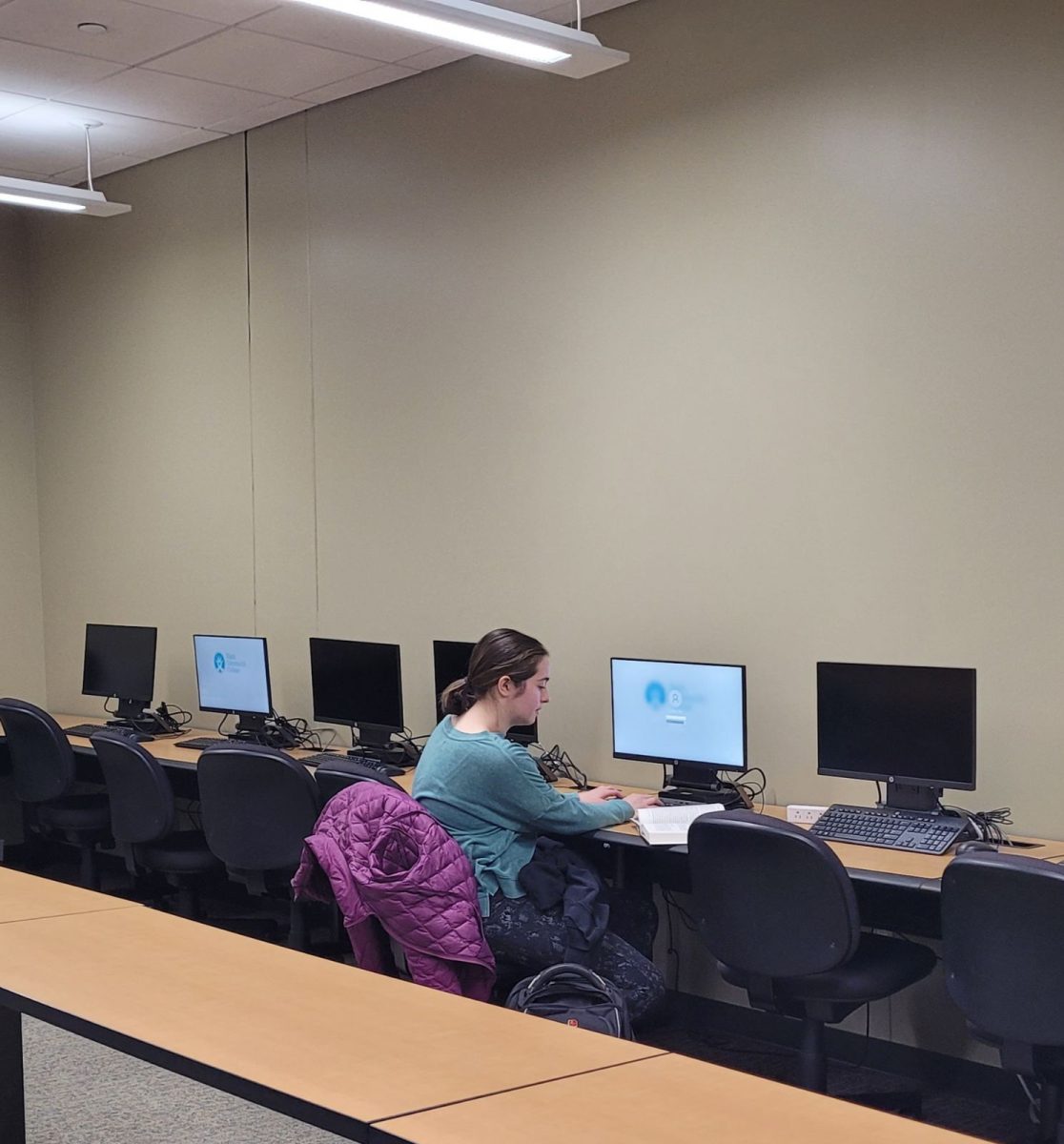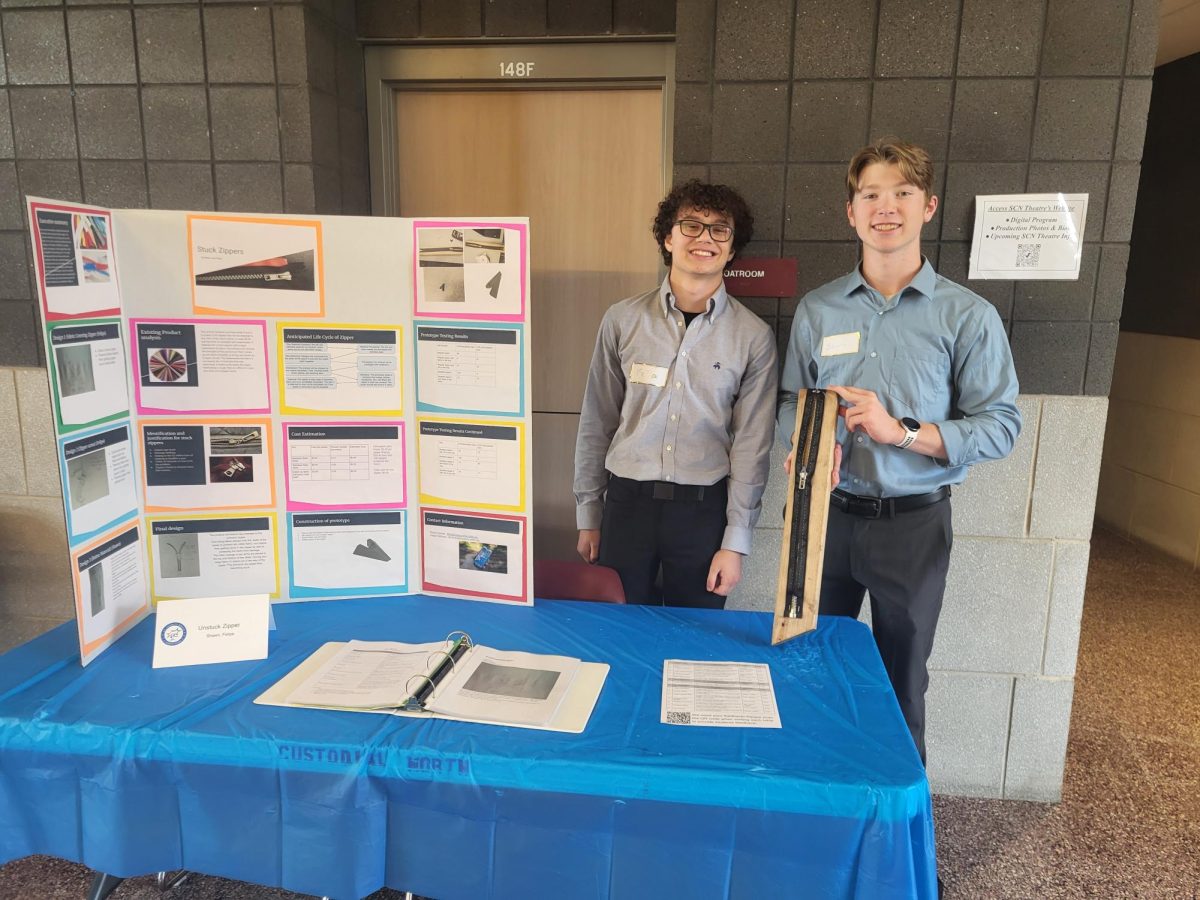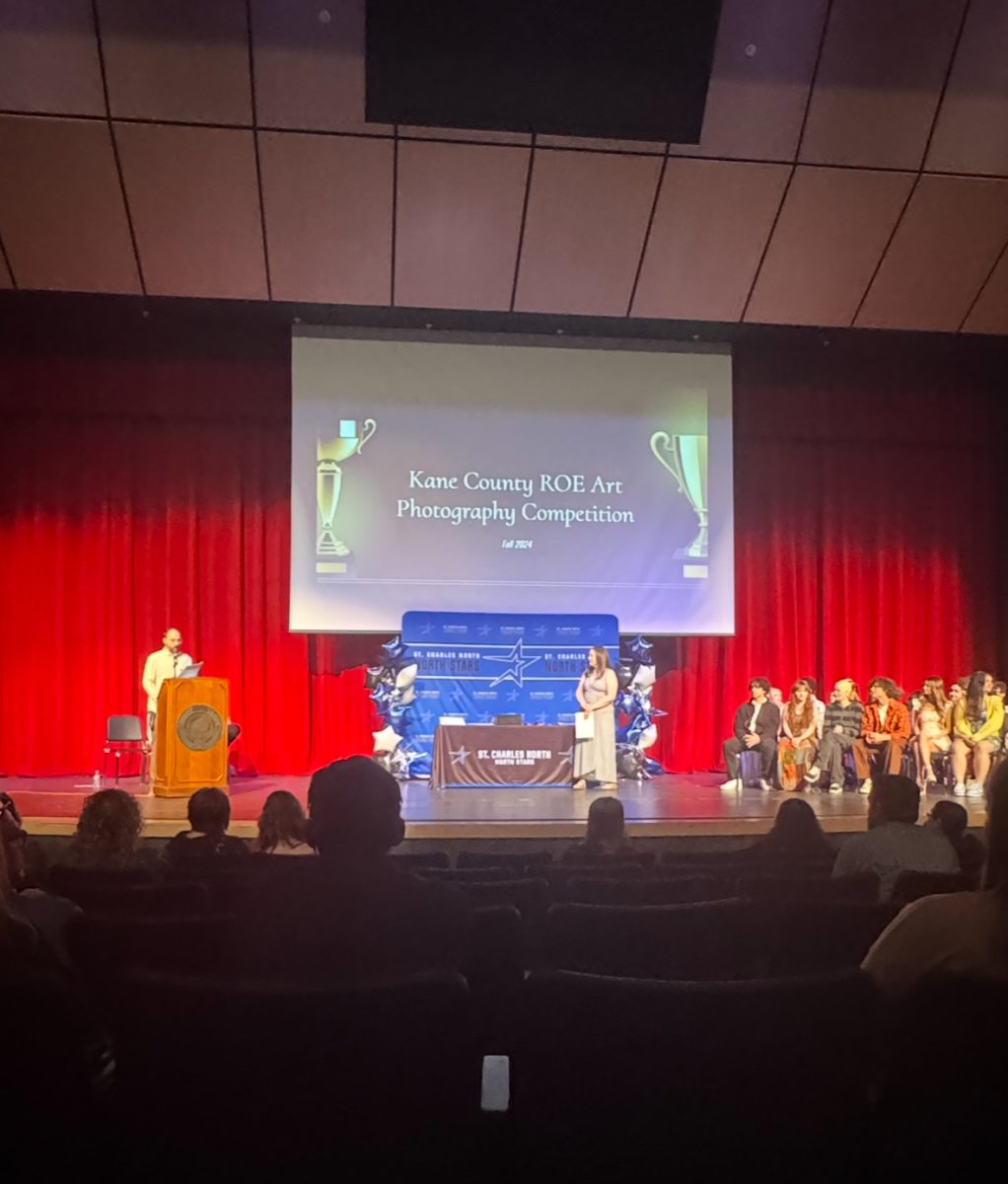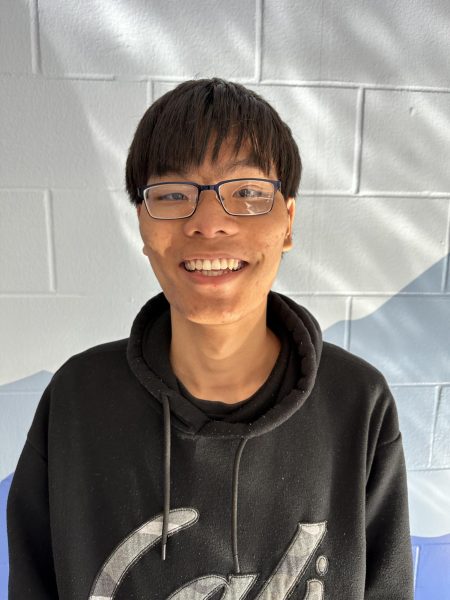In recent years, many highschoolers across the country have been given the opportunity to take college-level classes out of local community colleges as a part of their school’s dual credit program, an opportunity also available to North’s juniors and seniors. North and nearby Elgin Community College (ECC) have partnered together to offer dual credit courses that allow students to earn college credits early.
By enrolling in these college-level classes, students are earning credits that can eventually be transferred to their college of choice after graduating high school. These students are earning required credits early so that they do not have to at their future universities.
There are three different variations to the dual credit program that allow students to take classes in the way that’s best suited for them. The first option is enrolling in ECC’s classes but taking them physically at North. Classes like English 101, Accounting 100, and Math 102 are all classes that are available for students to take inside the building that are taught by North teachers.
The second option is part-time dual credit, where students attend North classes periods one through five, then head over to ECC to attend college classes in the afternoon.
Of both the part-time program and at the highschool program, there are two specific types of classes taken at ECC, General Education (Gen Ed) and Careers in Technical Education (CTE).
Gen Ed classes live up to their name, exploring broader topics that can prepare an individual for a career in a variety of different fields. Courses in psychology, economics, and even Japanese are examples of common Gen Ed classes. Most colleges require specific credits that taking Gen Ed classes can fill. These courses are different than CTE, which focus on specific careerpaths for students who are interested in entering a particular field beyond high school. These courses are in areas like welding, culinary arts, and criminal justice.
“Some of the more common [Gen Ed classes] are English 101 and 102, United States history, political science, economics, psychology, biology is very popular, there’s a humanities course on ethics that’s very popular, so a lot of courses like that,” said John Peters, assistant principal for college and career readiness. “The most popular programs [in CTE] that we have there are welding, autos, [Basic Nurse Assistant Training]. So programs like that but we’ve also had students take programs in business fields.”
North senior Jess Kinzle is currently enrolled in the part-time dual credit program.
“I’m taking English 101 and Bio 108, and those are both Gen Eds to get graduation requirements,” said Kinzle. “[Gen Eds are] not necessarily specific towards what I want to do [in the future] but it does help to cut down the cost to certain semesters in college. That always helps.”
The third option for enrolling in this program is attending ECC classes full time. These students do not take any classes at North and take four to five classes each semester at the ECC campus. Students can either begin taking the one year program their senior year or the two year program their junior year, which can help them ultimately knock out credits and even earn their Associate’s degree. Enrolling in ECC’s dual credit program for one to two years can mean students start as sophomores or juniors at their future universities.
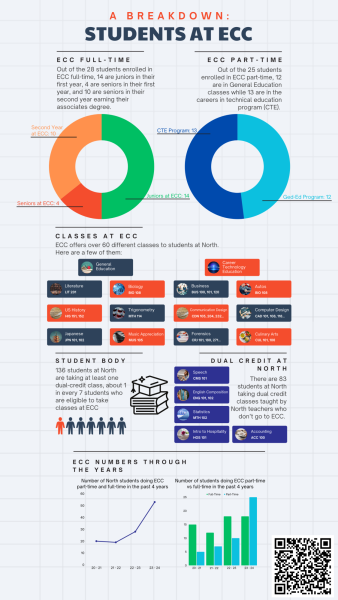
“We have other students that do the two year program, and by the time they’re done, they’ve earned their associate’s degree and their high school diploma, and a lot of them then are going to go away to a four year school starting as a junior and only needing to spend two years in some cases,” said Peters. “It’s a real good opportunity.”
Taking these classes also has a major economic advantage for students and their families as well. Taking dual credit at the high school costs $50 per semester, part-time costs 50% of the initial course costs and full-time students pay $2000 per year for their courses, with books included for free.
“Pricewise, it’s a really good deal [for full-time dual enrollment] too. It’s $2,000 a year for that program,” said Peters. “If you compare that to the $40,000 or so a year you would pay at a university, that’s a huge savings. So if you’re talking about $4,000 for two years, as opposed to $80,000, that’s a lot. So it’s a good deal and you get an ECC transcript, and you can take it wherever you want.”
While taking these classes outside of North, there’s a concern that students may feel disconnected from the social environment of high school. However, many dual credit students still participate in clubs, sports, national honors societies, music programs, and attend events like Homecoming and Prom.
“You’re not really missing out on North since you’re still able to go to the dances and whatever assemblies you want,” said Tom VanDorpe, senior in the full-time dual enrollment program.
VanDorpe is also the president of North’s ESports club, where he gets to engage in his interests with others despite being absent from North during the actual school day.
“It is nice that you’re able to participate in clubs while you’re doing dual credit,” said VanDorpe.
While these students still are able to be a part of their high school community, they also get to belong within social groups at ECC, with some students even leading clubs on campus.
“There’s just a lot of things to like, get involved. They had the Diwali celebration, a few job things and career opportunities,” said Kinzle. “It really actually feels like you’re in the community, sometimes at school you have to really go anyway to find these projects, but it’s just around you [at ECC].”
As we approach course selections for the 2024-2025 school year, current sophomores and juniors are now able to consider the options best suited for them, including any of the three dual credit paths.
Peters encourages students to ask their counselors and teachers questions about what is best for them and to read weekly CCR updates for information on how to apply for dual credit classes.
“We’re coming up on course selection right now. So this is the perfect time to be looking, talking to teachers, figuring out if [dual enrollment] is something that they want to do,” said Peters.


